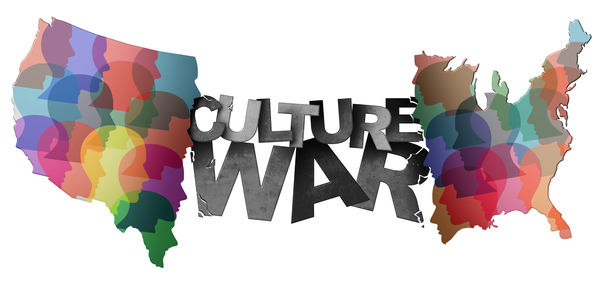By Pastor Andrews - Mar 29, 2022 #culture #testimony
The Christian Response to Cultural Threats

I was watching golf on a Sunday afternoon when a commercial aired that, frankly, left me baffled. The spot was sanctioned by the PGA and sponsored by Korn Ferry, a management consulting firm headquartered in Los Angeles. Desree, a young black woman, unknown to me, stood in the middle of the screen and recited the following message.
“Can you feel it, this shift, like the earth moved a bit, like what wasn’t possible before is now almost in our grip?…Diversity is more than a poster, inclusion shouldn’t be a burden, a plethora of identities create great ideas way bigger than one person. There is power in our difference. We are ready and we are strong. The future is ours to shape. But what side of history will you be on?”
The shift she mentioned—I felt it and feel it even now. It rumbles in my soul, the uneasiness of a threat, building in intensity and poised to break upon the church like a tsunami. The moral revolution continues its relentless attack on biblical values and the institutions that uphold them: what it means to be male or female, who decides what is right or wrong, and who has the authority to draw the line of demarcation between those on the “right side of history” and those who are not.
It rumbles in my soul, the uneasiness of a threat, building in intensity and poised to break upon the church like a tsunami.
The message came camouflaged in the noble ideals of diversity and inclusion. Yet, the message undercuts itself by not-so-subtly suggesting that there is a “right” and “wrong” side of history. In other words, not all perspectives—and the diverse worldviews underneath them—are valid. There is indeed an exclusive truth, and it’s “ours.” Thus, the veiled threat: get on board—or else. And make no mistake, they are “ready,” they are “strong,” and the future is “ours to shape.”
When threatened, an instinctive response is “fight or flight.” But the Christian is capable of and compelled to have another response. As Christians, it should never be a matter of being on the right side of history or even proclaiming that God is on our side. Rather, we should focus on being on his side (see Exodus 32:2). This means at least three things:
First, being on the Lord’s side means people are not the enemy. Our great adversary is the devil. Making those who disagree with us the enemy is as wrong as being on their side. While opposition to biblical truth provokes great passion in those who love it, those feelings should never fuel animosity toward others. Follow the apostle Paul’s advice: “We put no obstacle in anyone’s way, so that no fault may be found with our ministry.” (2 Corinthians 6:3)
Second, being on God’s side means we fearlessly stand for truth. Whenever biblical beliefs and values are assaulted, we must defend them with courage and compassion. Of course, in order to defend the truth, we must know it well. In these times of moral confusion driven by satanic lies, it behooves us to educate and equip ourselves to give sound, scriptural, and rational responses to every moral challenge.
Third, being on God’s side means we rely totally on him. Remember, we can win a battle but lose the war if conducted in the energy of the flesh. We need to remember that people will not be argued into the kingdom. While there is a place for debate, what most people in our circles need is God’s love channeled through us. The best way to engage our declining culture is through relationships that extend the grace we ourselves have received.